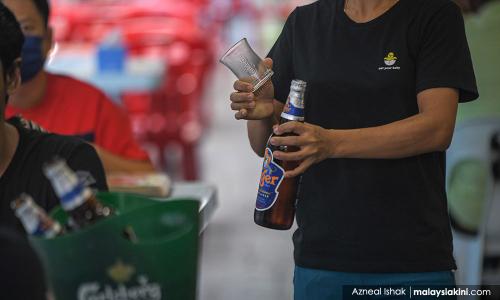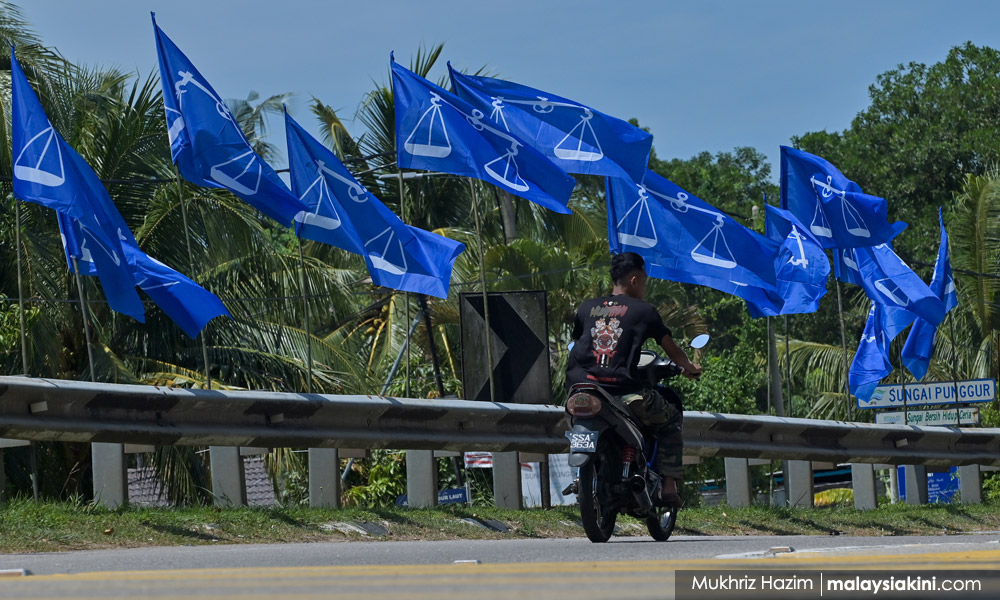LETTER | Coffee shop liquor licence - a red herring?
LETTER | Today, we talk about a small, silvery fish, called herring.
In some places, herring is a popular food. In the western world, herring is also part of a curious expression. They call unimportant information that is used to distract a “red herring.”
In this country, politicians often use red herrings as plot devices. They draw the rakyat’s attention away from serious issues by throwing out red herrings that they know will get a reaction.
The media – both mainstream and social are equally guilty and responsible for creating red herrings – reports that are used to purposefully distract readers from more important issues.
How did it come to mean that?
Some word historians point out that these smoked fish have a very strong smell. So, they might have been used to train hunting and tracking dogs.
They suggest the scent of red herring could trick a group of hunters and, more importantly, their dogs. In other words, red herring could throw even the best hunting dogs off track, making them likely to go in the wrong direction.
Now let’s hear these tricky words in a short story.
The non-Muslims' almost complete rejection of BN in 2018 marked a total contrast from the time the community saved BN’s two-thirds parliamentary majority in the 1999 general election.
The non-Muslims' dissatisfaction over the lack of a clear economic direction by the new government does not help and if it remains this way, the dissatisfaction will continue to fester until the next GE.
BN needs to convince these voters that the coalition and its Malay-centric narratives will not erode what the community currently enjoyed. Discontent on rising living costs and the economy is no longer confined to the non-Muslims but also spreading fast to the Muslim communities. And these concerns are real and not mere opposition propaganda.
One of the component parties in BN, who many have lamented for their failure to stand up strongly against Umno on various issues, has vowed that they would continue to fight and regain minority rights under the Federal Constitution as the party understood the political aspirations of the people they represent.
With scant wow factors to woo the non-Muslims, Umno, the cause of the other component party’s downfall due to its Malay agenda policies needs to play a bad guy good guy approach for the non-Muslims to return voting for them. Playing the economic reasoning card is the obvious choice for non-Muslims.
China Press did an exclusive on Dec 5 interviewing the Petaling Jaya Coffeeshop Association (PJCA) president who in the interview confirmed that from Jan 1, 2022, all restaurants and coffee shops will need liquor licences before they can sell beer at their premises.
The PJCA president was even quoted to have said he was notified about the matter only three weeks ago during a meeting with the authorities and even though he and other members of the industry raised objections during the meeting, they were told that as the meeting was just a brief where the government officers did not even announce the detail of the enforcement as well as the further regulations and rules, no discussions were allowed.
He was even quoted to have said the government officers told them to write to the Finance Ministry for any complaints, which they did following the meeting and that he hopes to meet the finance minister to discuss the matter.
The above briefing between PJCA and Customs Department allegedly only took place in early November while the Customs Department had, six months ago, first in June and then August 2021, already issued two circulars to all its division heads, state-level directors, and various local authorities including Kuala Lumpur City Hall (DBKL) informing them that with effect from Jan 1, that all restaurants and coffee shops will need liquor licences before they can sell beer at their premises, a requirement that falls under the Excise Act 1976 and Excise Regulations 1977.
In imposing this requirement, the Customs Department revoked its directive, issued 28 years ago, on Aug 24, 1993, which postponed the enforcement of licensing on liquor sales besides beer and stout in coffee shops and restaurants.
The news about the requirement of the liquor licence then received the attention of DAP and on Dec 5, the party went on a rampage criticising the move saying the federal government has now extended its interference in the customary lifestyle and business practices of non-Muslims nationwide and call for the government to revoke it.
After two days of discontent voiced over the mainstream and social media, the president of the component party issued a statement to announce that he has spoken to the finance minister, who currently is overseas, who confirmed that his ministry has ordered the Customs Department to revoke the liquor licence policy.
The non-Muslims are now convinced that the said component party fought for and regain minority rights under the Federal Constitution.
Does the government really want to impose the licence requirement on the coffee shops, the majority of which are owned by non-Muslims?
If all the coffee shops refrained from applying for the licence and stopped selling beer, would it not hurt and affect the revenue of the three licenced beer manufacturers in Malaysia? For the poor, it is just less convenient.
The coffee shops are unlikely to witness a substantial drop in patrons that could result in them closing their businesses.
Not when the licenced beer manufacturers combined, contribute to Malaysia’s incomes and employment with over RM2.2 billion in taxes annually, provide direct and indirect employment to 66,000 people, while its products are a source of income to more than 35,000 Malaysian businesses and retailers.
Not when the country has the 10th largest population of alcohol users worldwide, with annual spending of RM2 billion on alcoholic drinks.
And that’s Words and Their Stories.
How many red herrings can you find in this story?
To conclude, Malaysians need to be careful and circumspect of our politicians.
The views expressed here are those of the author/contributor and do not necessarily represent the views of Malaysiakini.
RM12.50 / month
- Unlimited access to award-winning journalism
- Comment and share your opinions on all our articles
- Gift interesting stories to your friends
- Tax deductable

